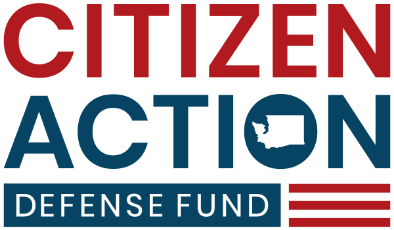https://crosscut.com/briefs/2023/09/lawsuit-against-washington-cap-and-trade-program-set-hearing
By John Stang
The first legal showdown over Washington’s cap-and-trade program, which went into effect in January, will be Sept. 22 in Thurston County Superior Court.
In January the Citizen Action Defense Fund, a watchdog group that focuses on conservative causes, filed a lawsuit against the state that alleges the Legislature crammed multiple subjects into its 2022 transportation bill, including the cap-and-trade program. The complaint alleges that the bill violates the Washington state constitution by covering more than one subject.
In the Sept. 22 hearing, the plaintiff will seek a summary judgment from the judge on its lawsuit.
The lawsuit has two goals, said Jackson Maynard, executive director for the Citizen Action Defense Fund. One is to hold the line on the constitutional rule that limits a bill to one subject. The second is to halt, at least temporarily, the state’s new cap-and trade program.
The Legislature approved the cap-and-trade bill in 2021, but not until last year’s transportation bill was passed could the Washington Department of Ecology set up regulations to put the program into action.
Washington’s cap-and-trade program is designed to decrease carbon emissions in the state to meet 2035 and 2050 decarbonization goals. A 2021 Washington Department of Ecology report estimated the state’s carbon dioxide emissions at 99.57 million tons in 2018. A 2008 state law calls for overall emissions to be reduced to 50 million tons by 2030, to 27 million tons by 2040 and to 5 million tons by 2050.
Under the program, carbon-emitting corporations bid on allowances for the pollution emitted by their facilities. Through a complex system, the winning bidders all pay the same prices during each quarterly auction. Those final prices were $48.50 per allowance (roughly one metric ton of carbon) for the first quarter of 2023; $56.01 per allowance for the second quarter; and $63.03 per allowance for the third quarter.
Washington’s program is often referred to as “cap-and-invest,” because the money raised in the auction is spent on projects meant to slow or adapt to climate change, such as replacing gas-powered buses and ferries with electric versions, building cleaner energy projects and more.
The cap-and-trade bids have been linked to gasoline price increases of 40 cents to 50 cents per gallon. Right now, Washington and California are competing to have the highest gasoline prices in the nation. Washington’s gas prices have traditionally been near the highest in the nation due to a variety of factors, but June was the first time that Washington has posted the highest prices.
The program has raised $1.46 billion so far. The money is earmarked for a large number of programs to combat climate change, which has been linked to increasing problems with health, agriculture, fish and wildfires.
“I’m not convinced the money generated from Washington’s cap-and-trade system will help the environment,” said Dann Mead Smith of the fund’s board of directors.
Negating the state’s 2022 rule-making capabilities on cap-and-trade will temporarily stop the program, which will translate to lower gasoline prices, Smith said.
Gov. Jay Inslee’s office does not comment on ongoing litigation, said spokesman Mike Faulk. “However, laws are presumed constitutional and the challenging party bears the heavy burden of establishing its unconstitutionality beyond a reasonable doubt; and the Legislature routinely passes omnibus revenue measures with an intentionally broad title,” Faulk said.
Former Republican Attorney General Rob McKenna is on the attorney advisory council for the defense fund.
Other conservative groups are trying additional avenues to attempt to block the new law. The advocacy organization Let’s Go Washington is gathering signatures on petitions to ask the Washington Legislature to repeal the state’s new carbon-pricing system.
Let’s Go Washington has to collect 324,516 valid signatures by Dec. 29 to submit to the Legislature any of the six petitions it is developing. If the Legislature decides not to act on the petitions with enough signatures in its 2024 session, they would go on the election ballot for the November 2024 election.
Democrats have significant majorities in both the Washington House and Senate, meaning any successful petition would likely receive a chilly reception.

